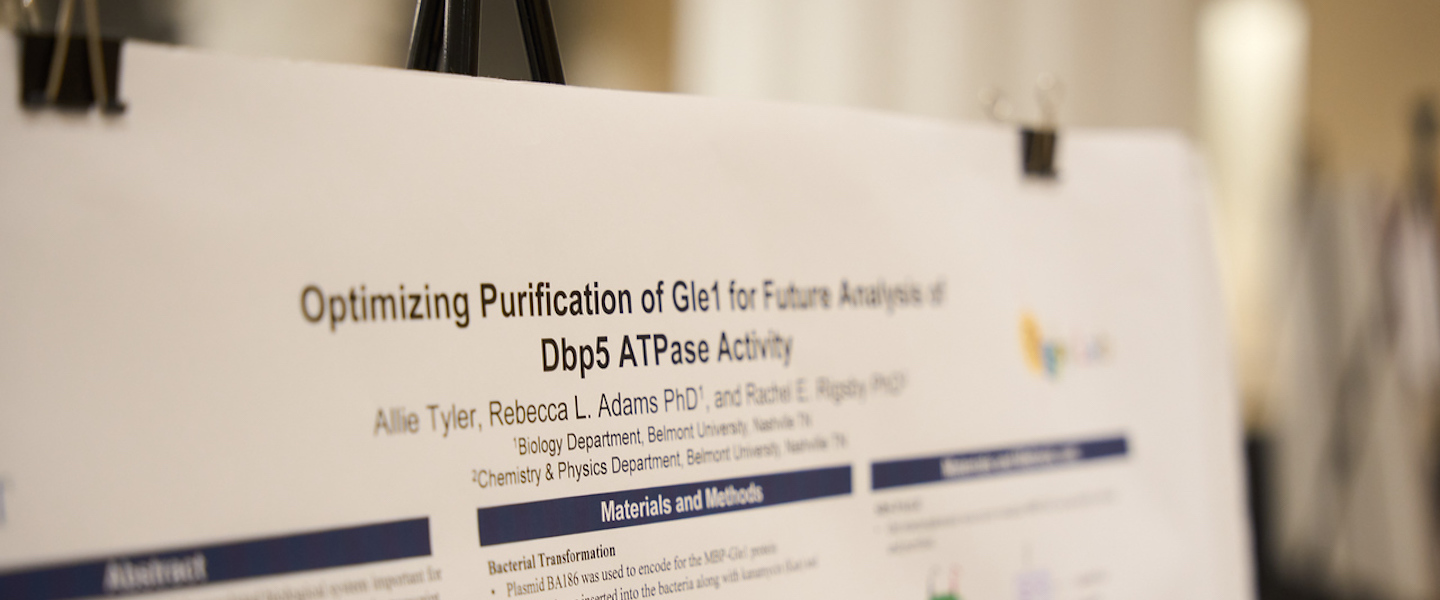Science Undergraduate Research Symposium planned in conjunction with talks about the science behind pop culture
Science is not just for scientists, and the faculty and students in Belmont’s College of Sciences and Mathematics want you to know it.
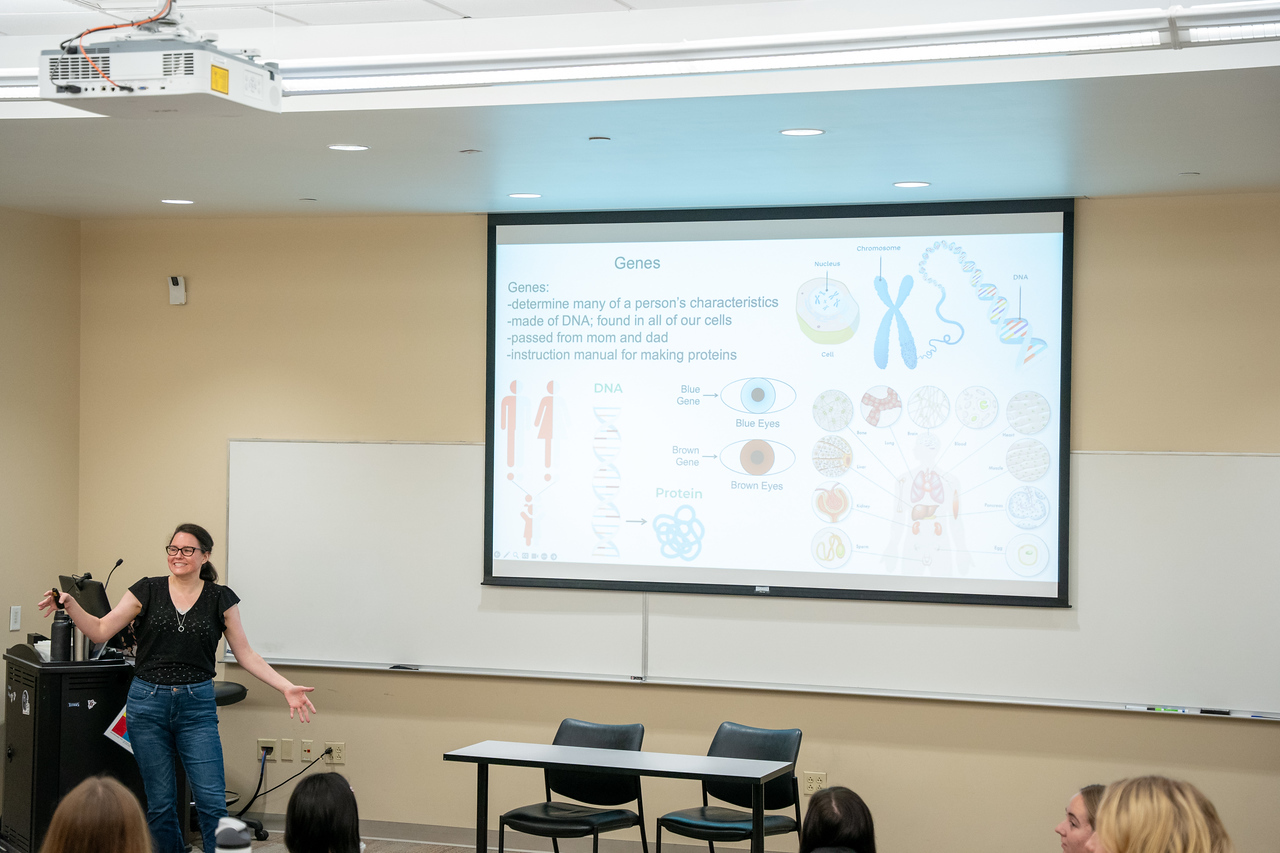
“We are immersed in a world of technology and innovation. Our job as scientists and mathematicians is not just to dig into this world ourselves but to share what we learn and discover with our community,” shared Dr. Beth Bowman, assistant dean of the College of Sciences and Mathematics.
To do this, CSM expanded a lecture series developed last year called “Front Page Science,” where faculty and students present the scientific side of stories in pop culture for the Belmont community.
CSM’s “Front Page Science” week was built around the annual Science Undergraduate Research Symposium (SURS) where students present their semester-long research projects in a poster presentation format.
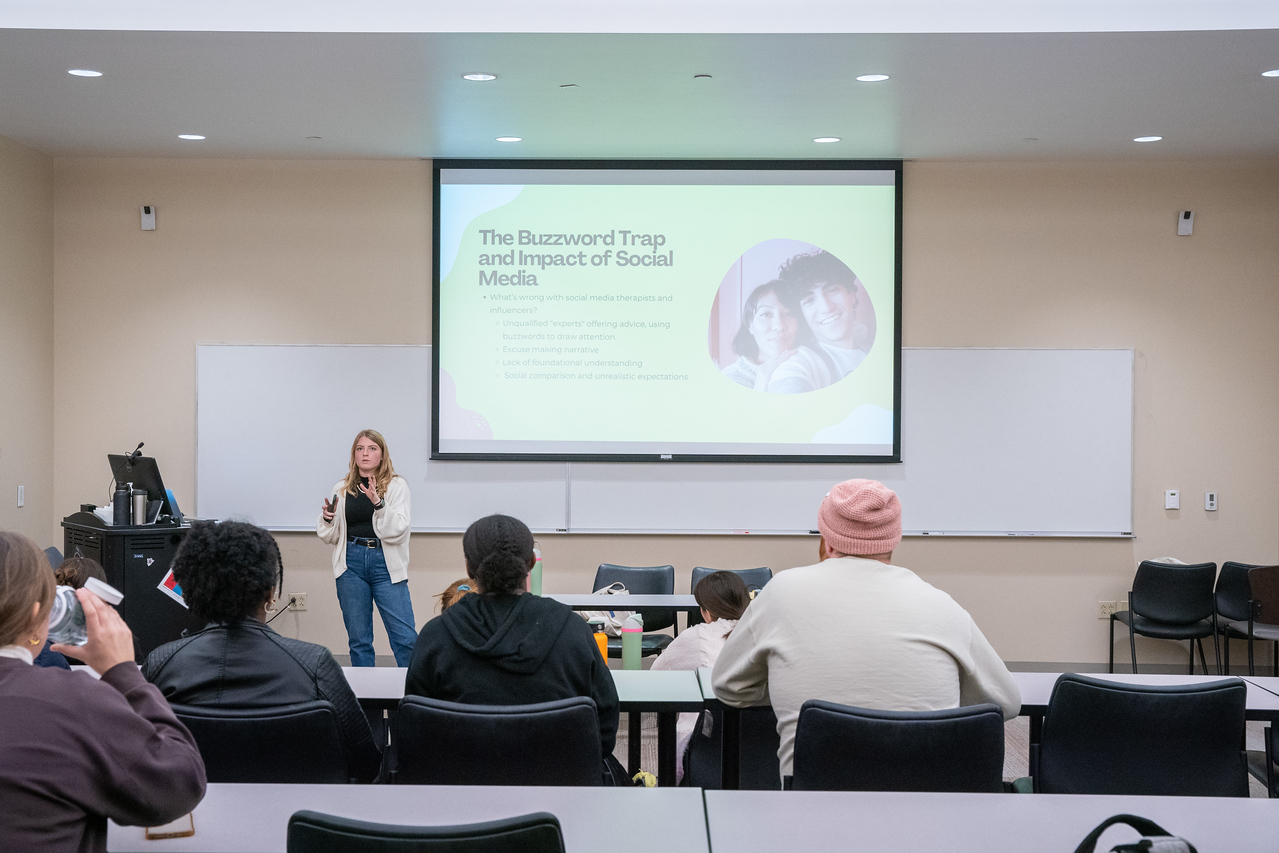
“There is so much misinformation in our culture and distrust of science,” Bowman continued. “We want to help reverse that, starting in our community, by giving the contest for important stories in our world.”
This year, six stories were presented, including:
- “Navigating Attachment Styles in the Influencer Era” by Sarah Bouthillier
- “Unconventional Paths to Planet Preservation” by Lauren Merrill
- “Gene Editing is the next Medical Wave" by Dr. Becky Adams
These topics highlight the importance of science in the real world. Merrill explained, “Science is in all our lives every day — from the air we breathe, to the food we eat, to the medicine we pick up at the grocery store. Having conversations about it is important!”
Dr. Adams added, “Having talks aimed at information in the news that people might have heard of is such an approachable and interesting way to capture the attention of those who might not be immersed in STEM topics.”
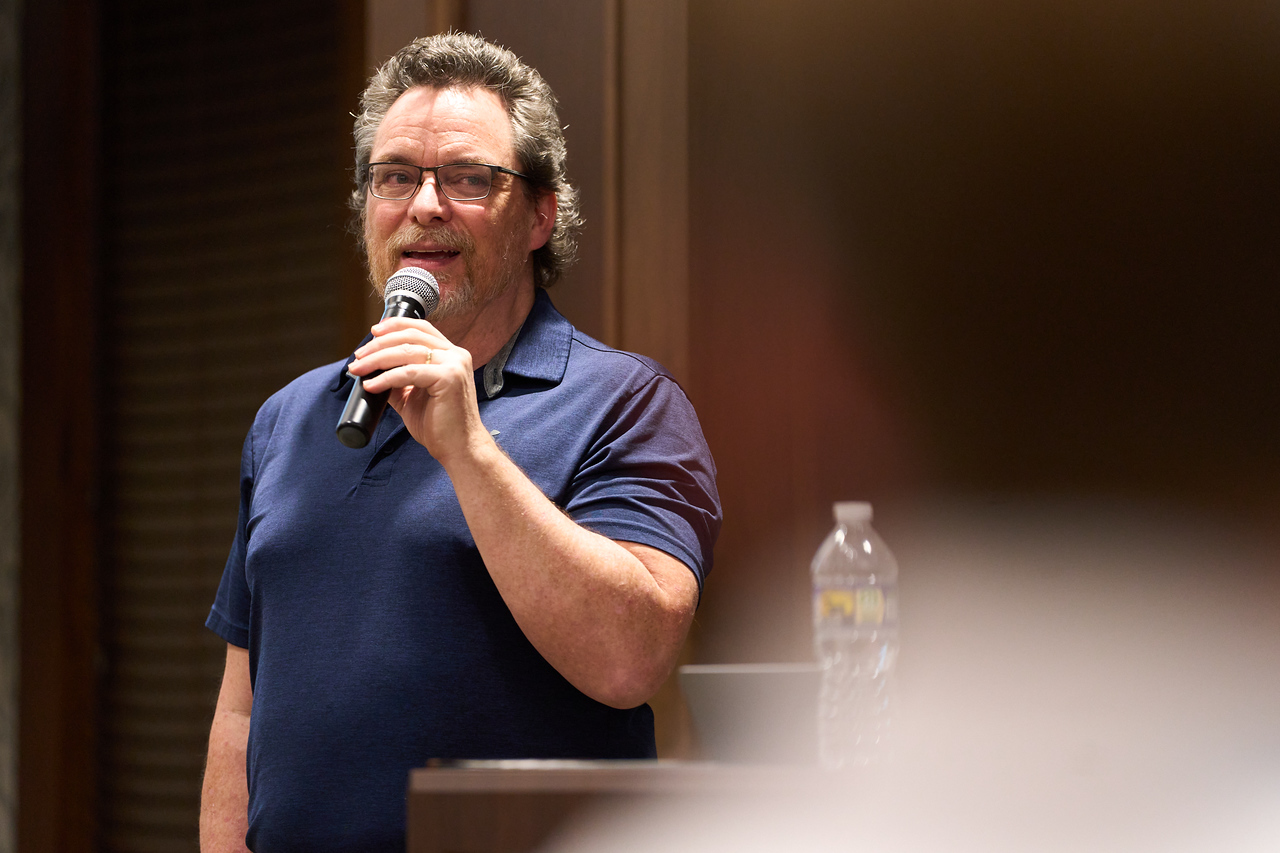 Highlighting “front page science” to the Belmont community around SURS is a strategic way to bring CSM students’ research to the forefront.
Highlighting “front page science” to the Belmont community around SURS is a strategic way to bring CSM students’ research to the forefront.
Junior neuroscience major Gavin Khamphouvong, for example, shared about his research conducted this semester with Dr. Schoenfeld, in which the researchers looked at the effects of adding probiotics to rats’ diets.
Previous studies indicate that high-fat diets play a role in the area of the brain responsible for learning and memory, so the research question at hand was whether the addition of probiotics would also influence memory function.
“What my results showed was that a specific hippocampal brain region, CA3 Apical neurons, had a higher dendritic spine count for the probiotic rats compared to the control rats,” Khamphouvong explained. “This, overall, suggests that probiotic supplements can have restorative effects.”
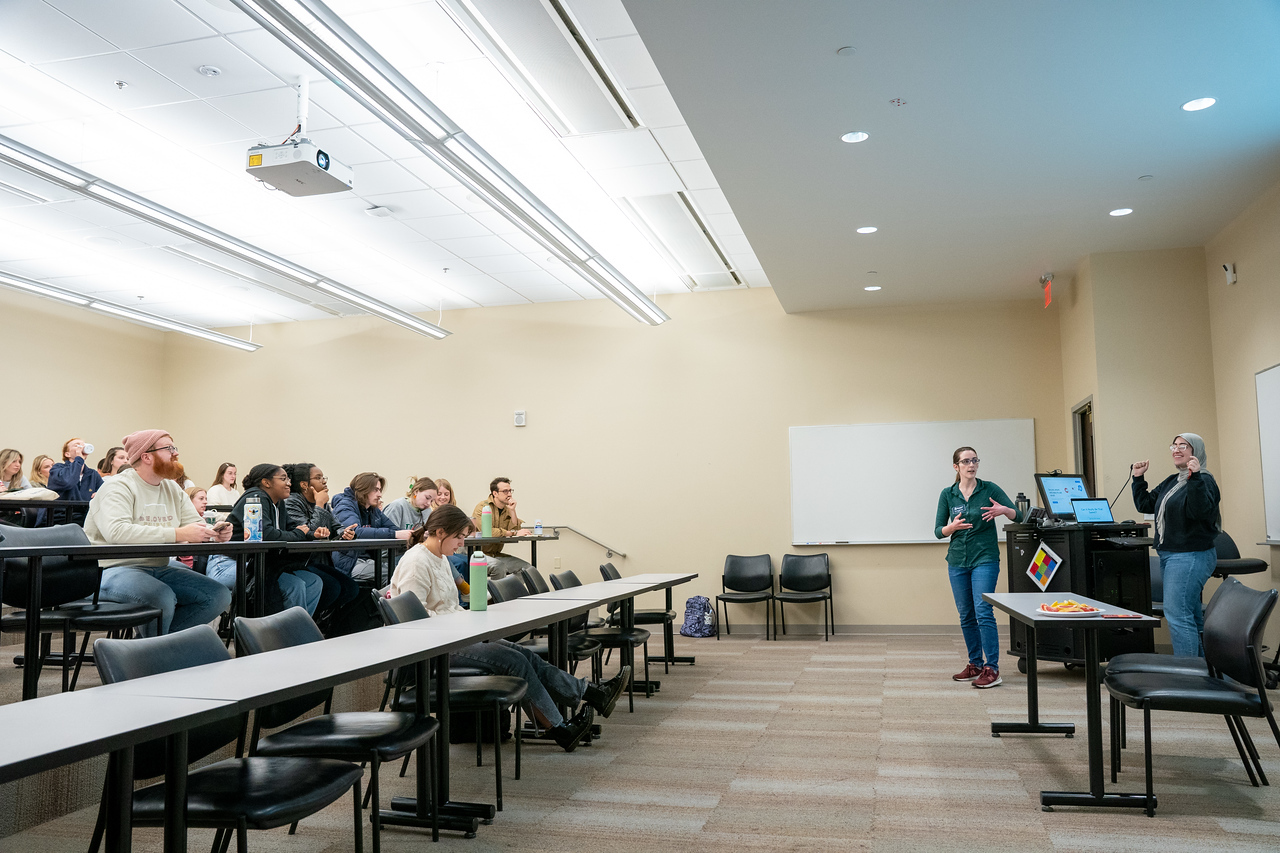
Khamphouvong said this research taught him patience and resilience while enforcing his love for approaching a challenging question head-on, giving him a great foundation of what research is really like.
“As I plan to attend medical school, I would like to continue to conduct research, and this experience enabled me to have some great background experience,” he said. “Being able to tell and teach other undergraduate students about my semester long project is very fulfilling and hopefully inspiring to upcoming researchers!”
Dr. Adams concluded, “I love that the pop-talks, which discuss ‘hot’ research topics across the world, are paired with the discoveries our very own students are making. I think this emphasizes that our students are part of the broader scientific community and helps them see themselves as scientists.”

